By Uran Kalakulla
Part Twenty
Nazism and Communism
Memorie.al / Nazism lasted 12 years, while Stalinism lasted twice as long. In addition to many common characteristics, there are many differences between them. The hypocrisy and demagogy of Stalinism was of a more subtle nature, which was not based on a program that was openly barbaric, like Hitler’s, but on a socialist, progressive, scientific and popular ideology, in the eyes of the workers; an ideology that was like a convenient and comfortable curtain to lie to the working class, to lull the sharpness of intellectuals and rivals in the struggle for power.
One of the consequences of this peculiarity of Stalinism is that the entire Soviet people, its best, most capable, hardworking and honest representatives, suffered the most terrible blow. At least 10-15 million Soviets lost their lives in the torture chambers of the KGB, martyred or executed, as well as in the camps of the Gulag and others like them, camps where it was forbidden to correspond (in fact they were prototypes of the Nazi death camps); in the mines in the ice of Norilsk and Vorkuta, where people died from cold, from hunger, from crushing work in countless construction sites, in the exploitation of forests, in the opening of canals and during transportation in lead-lined wagons, or in the flooded barns of the death ships.
Continued from the previous issue
We were slaves to these two masters. And we had to obey completely both the imprisoned brigadier and the free technician; both the head of our technical office and the engineer of the construction site or sector. And consequently, we had to be ready for both the senior cadres of the Ministry of Interior, who came from time to time to see the progress of the works, and the various directors of the Ministry of Construction and, especially, of the aforementioned “21 December” enterprise.
It was the year 1963-1964. When we worked in that prison camp, the chief engineer of “21 December” was Thoma Disha, a former classmate of mine at the Tirana high school. Before I was imprisoned, I had left him as the construction site engineer at the Combine. And look what his master had done to us! The director of that important enterprise was Neço Konomi, a member of the Party Central Committee. The chief engineer was supposed to be the assistant or first deputy to the director. Thus, the wrestler Thoma had achieved this in a very short time. I knew this man inside out, as the people say.
How the hell did I not know him, having been a classmate for eight consecutive years of high school? Thoma was one of those high school students who dressed very well, even elegantly, and before the War he always came to school looking very pompous: in new, expensive suits, with good shoes, a shirt with a collar, with collars of every color, according to the suits. While I was among the simplest in my clothing.
We had not become very close to each other, because I did not like his very introverted and frivolous nature. He would make banal jokes on the side, which I did not like at all. He always looked at women in particular with a sexual eye. On the other hand, as a class teacher, he was also a servile and subservient person to the professors, to the point of disgust. He was very average in his classes and did not excel in any of the subjects; neither in the scientific nor the humanitarian ones. He was one of the most skillful copyists in assignments and exams and, thanks to this skill, he passed the class.
After the liberation, when class differentiation began to take shape in the gymnasium and the communist youth there gained so much power that it even conquered the teaching staff (including the school principal, who could have been a communist himself), Thoma Disha, despite his clear bourgeois origin and, moreover, with his father immigrating to America, became one of the most prominent activists of this youth. Like a pelican that he was, he would hang around the “heads” of the Communist Youth of the gymnasium, lick them, and servile them.
On the other hand, he maintained a strict and gloomy attitude towards his comrades who were not members of the Communist Youth, who were outcasts and kept to themselves for fear of open persecution. But his severity exploded more violently, especially towards the high school students who had also been expelled from the “People’s Youth”, which included the majority of the school, who were not members of the “Communist Youth”.
It is understood that, especially in the matura, I was one of those persecuted by comrade Thoma, as an expelled from the subjugated People’s Youth who wanted to say a close candidate, to be put in prison and to receive the title “Enemy of the People”. I remember very well the winter of 1948. A major crisis of international proportions had just erupted: the “Berlin Crisis”. I was a high school senior and I was sitting alone on the bench, at the back of the class. None of my classmates spoke to me. The Communists out of hatred, the “People’s Party” out of fear of suffering the same fate as me.
What had happened? The Soviets had blocked the only path connecting Federal Germany with “West Berlin”, preventing any passage through it, especially from West to East. Then, the Americans, faced with the fact of the breach of the Potsdam Agreement, immediately after the end of World War II, and before an open Soviet provocation, created an air bridge between West Germany and West Berlin.
Thus, day and night, American planes crossed that corridor to supply the western area of the former German capital. But even here the Soviets were not at ease. They tried to block this bridge with flights of Soviet fighter planes, around the allied ones, risking a clash between them, which would mean a declaration of war between the West and the East, that is, World War III. Now even with atomic bombs.
In such a situation, the whole world was very worried and people had turned their ears to the news on the radio and newspapers, with anxiety in their hearts: But, in Albania, among the anti-communists, where I was now openly joining, the concern had turned into a hope, convinced of the absolute superiority of the West and of the defeat once and for all of the red scum, wherever it ruled, first of all in our unfortunate country. In those days, even the furious Albanian Komsomol members in the gymnasium seemed to have let down some feathers. Inevitably, the first was comrade Thoma Disha, who was also the class leader, although a pure bourgeois by origin and economic situation.
One day, during the break between classes, when everyone else had gone out to the yard or the boulevard, to stretch their legs as usual or to get some fresh air, the classroom door opens and Thomai enters. First to me:
– “Uran,” he says to me with feigned kindness, “do you need something, a dispensary or a book and you are missing it? Thomai will find it for you and give it to you by trickery, so that these other scoundrels of the organization don’t find out.”
I was reading a book by Gorky in Italian, because I didn’t know Russian. The book seemed interesting to me and I was concentrating hard on it. Its title was: “The Destruction of Personality.” It was not without reason that I had chosen Gorky there and not another writer or scholar. I knew that my “friends” of youth would check me when I was forced to leave the classroom. I left reading and stared at that hypocritical face, that two-faced scoundrel, and said bluntly:
– “Hey, Thoma Disha, Thoma Disha! I know very well why you approached me! You have probably been stuck with your ear to Radio London all these days! Please go away, because I do not need your help or your company at all”! I said these last words in a tone, carefully adjusting my voice. He turned pale, lowered his head, and quickly snapped his neck out of the classroom.
The Berlin crisis ended with a return to normality. Our class graduated and the “comrade communists” received scholarships to study abroad in the “Socialist Camp”. Thoma was not given a scholarship; apparently they read his cards to see who he was. But he, as a wrestler, became very active in the Youth Committee and after a year, not only did he receive a scholarship, but also a special one, one of the ones with more money, and even in Budapest, where there were very beautiful girls, as Thoma, the great lover, had desired.
And, after finishing his studies in Civil Engineering (as I have mentioned before), I saw him at the Combine’s construction site, where there were also many girls, although he did not leave the teachers of the villages of that area alone. And now he was the chief engineer of “21 December”, as an assistant to the Minister of Construction; with a “Pabieda” car at his disposal, like the ministers of that time, no less!
He had come to our construction site several times and I had heard that not only the imprisoned brigadiers and technicians had taken notice of him, but also the chief operative of our technical office, and even the free technicians and engineers had found trouble with him, with whom he behaved like a real tyrant, cursing and threatening, so much so that many of them had become very angry.
One of those days, he had come to the palace and, going upstairs, had caught his eye the room on the first floor, where I worked. It was time for us to have a half-hour break to eat breakfast. The cauldrons would come and we, as we received our rations, would disperse around the facility to eat that kind of food. So I didn’t end up at my workplace.
Seeing my good work, the chief engineer had asked who had done it. And the brigadier, together with the free engineer who accompanied him, had caught my name on his lips. Then Thomai was surprised and had expressed a desire to meet me.
To fulfill his wish immediately, the brigadier, a dirty scoundrel and servile (if not even a spy), had gone to the place where I was eating, a prisoner worker, to urgently call me.
– “Go and tell the brigadier and the engineer that I have a break and breakfast schedule. I will go to the workplace when the schedule is over, you hear?”
When I went to the workplace, Mr. Thomai appeared before me: elegantly dressed, certainly better than when he was a high school student, now puffed up like a turkey, all cocky and addressed me:
– “Hey, Uran Kalakulla, what does that social democracy of yours look like? Do you see where you ended up with it”? A noble man, even in his position, since I was already in the position of a slave tied in shackles, would not only not have used sarcasm, but would either have pretended not to know me, or at most, would have asked me about my work.
If I had been standing next to him (even if far away!), not only would I not have teased that scoundrel, but, on the contrary, I would have said a couple of good words for the work done with care and originality. I could even have been pushed and ordered the engineer of the facility to pay him a few more lek. But shit, it remains shit, at all times and in all situations. Because he was born shit and, only shit!
Then my eyes darkened with rage. I remembered everything I had told you before, down to the smallest details. Well, we were talking together again after 16 years, when we were no longer young as before, but at a mature age. Indignant, I answered him loudly, so that everyone around could hear; not only the freelance engineer, my brigadier, but also the captain of the brigade to which I belonged and the head of the technical office, the camp’s chief spy:
– “Listen, Thoma Disha! You boast to these who don’t know you, but not to me, who knows your teeth and molars! You have been a scoundrel and a servile person all your life and you have remained a scoundrel! You are the prototype of negativity and meanness, that’s what you are”! Everyone present was taken aback by my words. For them, he was the lord of that place and everyone trembled before him. How dare I speak to that chief engineer of the enterprise like that?!
That fool certainly didn’t expect that answer from me. So, his face flushed red, his mouth foaming with rage, he shouted at the top of his voice:
– “Captain! Take this and put him in the dungeon! And may he never work here again! Only in a lime pit does he belong, this incorrigible enemy of the people!” Thus said the “big boss” and called the car, got in it and snapped his neck as fast as he could from where he had come.
Then, very surprised, the captain, the engineer, the brigadier, the head of the technical office and the other prisoners who were there approached me and saw and heard everything, asking me where I knew that damn man. Of course I told them that we had been students at a gymnasium and that was it. Then, I addressed the captain:
– “Are you taking me to the dungeon, then, Mr. Captain, as you ordered him to do?”
– “No! – said the captain firmly. I take orders only from the commander, not from him”! Strangely enough, that captain was one of the wildest in that prison camp. Some even said that he had been a gendarme or carabinieri during the time of Zog or fascism, because he seemed to have some gray hair.
Another strange thing was that even the head of the technical office approached me with sympathy and continued to look at me in surprise. Meanwhile, the freelance engineer, responsible for the facility, told me that I had made peace with that dog (that’s exactly how he described it), and that he would put me on the payroll every day.
Whether I made the norm or not, I would receive 100 ALL (old money, of course) and that I would continue working in the parquet. When that dog came again, someone would take me to warn me, so that I would hide and not appear in his sight again. Meanwhile, my fellow prisoners came and someone hugged me, someone fell into my arms with love. Memorie.al




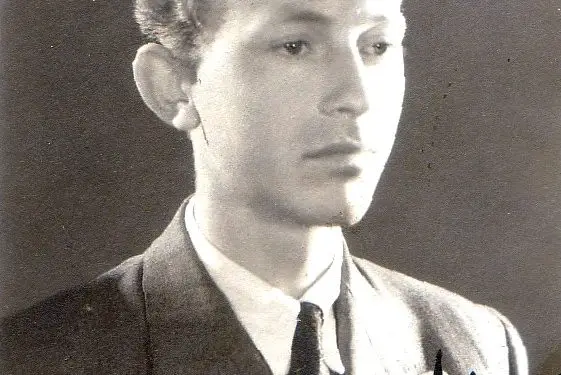
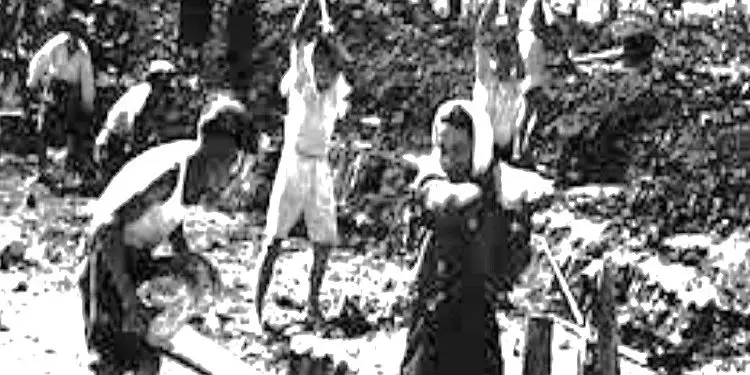
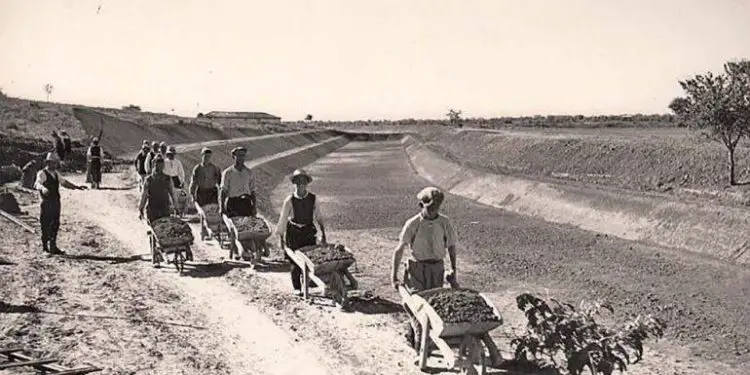

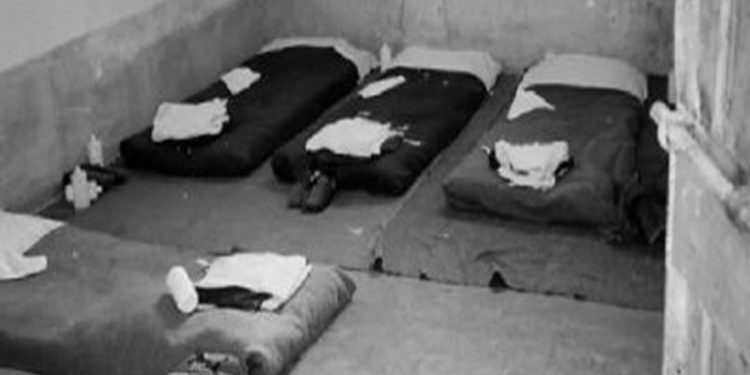
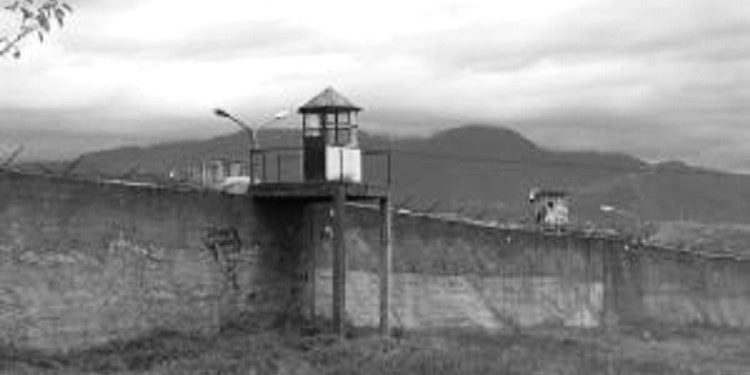
![“The ensemble, led by saxophonist M. Murthi, violinist M. Tare, [with] S. Reka on accordion and piano, [and] saxophonist S. Selmani, were…”/ The unknown history of the “Dajti” orchestra during the communist regime.](https://memorie.al/wp-content/uploads/2026/02/admin-ajax-3-350x250.jpg)
![“In an attempt to rescue one another, 10 workers were poisoned, but besides the brigadier, [another] 6 also died…”/ The secret document of June 11, 1979, is revealed, regarding the deaths of 6 employees at the Metallurgy Plant.](https://memorie.al/wp-content/uploads/2026/02/maxresdefault-350x250.jpg)




